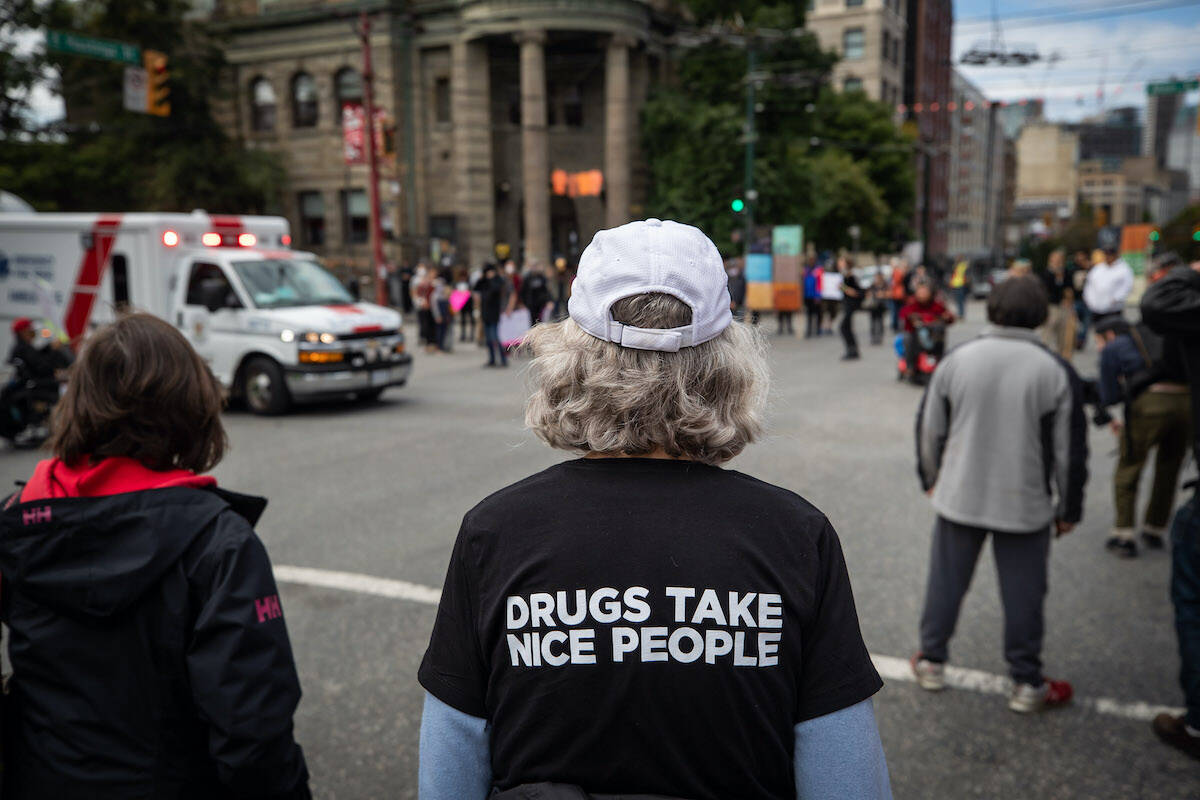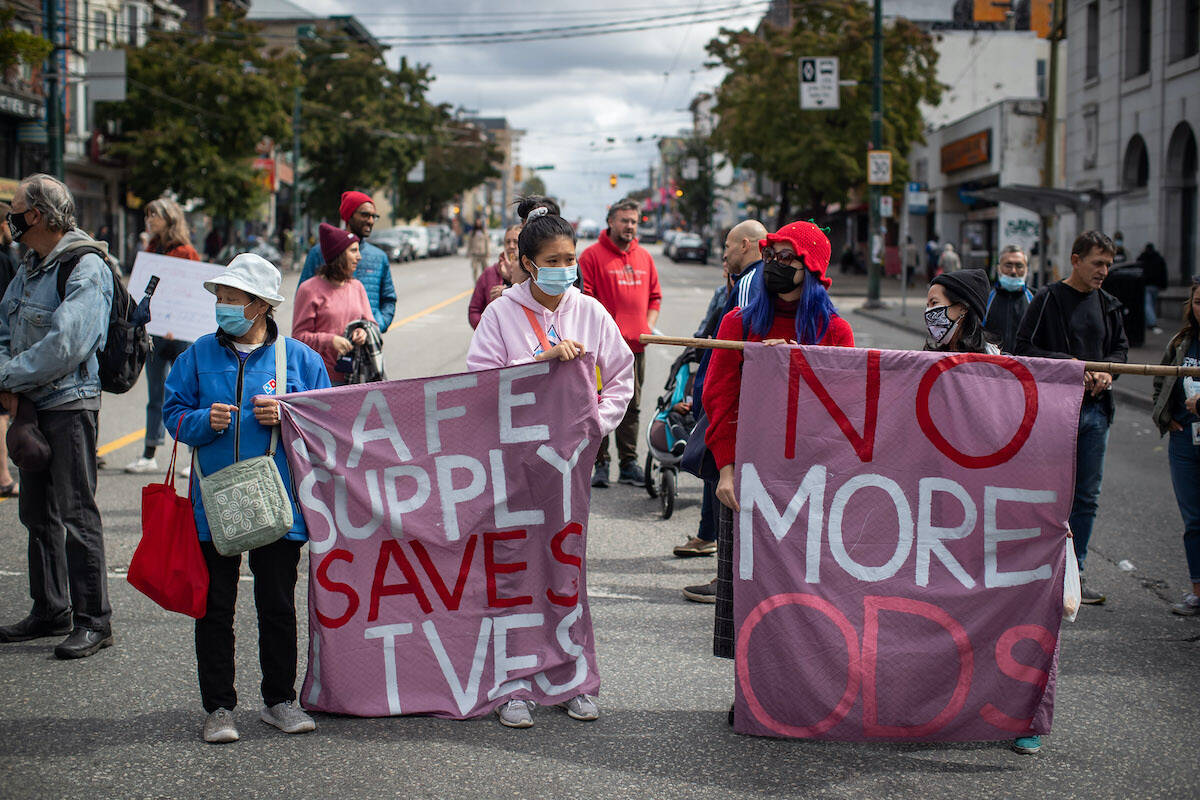B.C. has applied to the federal government to decriminalize simple possession of street drugs in the province.
The move has been discussed for several months amid the ongoing overdose crisis that’s seen 7,700 people die from toxic drug poisonings since 2016, and worsened through the pandemic.
The first seven months of this year were the deadliest in the province’s recent history. July was the 17th straight month of more than 100 B.C. residents dying from a toxic drug supply.
B.C. is the first province to seek such an exemption from Health Canada under the Controlled Drugs and Substances Act. Simple possession is a criminal charge which generally means the drugs are for personal use with no intent to traffic.
If approved, Addictions Minister Sheila Malcolmson said in an announcement Monday (Nov. 1) that the exemption would help reduce the fear and shame associated with substance use that prevents people from seeking care – a problem that she says isn’t a criminal issue.
“B.C. is adding new health and substance-use care services almost weekly, but we know shame prevents many people from accessing life-saving care. That’s why it’s crucial to decriminalize people who use drugs.”
According to an Angus Reid poll in February, 66 per cent of British Columbians support the application.
ALSO READ: Decriminalizing drugs the next steps in fighting B.C.’s opioid crisis, doctor says
The cities seeing the lions shares of overdose deaths have remained Vancouver, Surrey and Victoria – but fatality rates continue to also be high in communities such as Keremeos, Nelson and the Cariboo.
Prior to January 2020, when COVID-19 transmission touched down in B.C., the province was seeing a decrease in fatal drug poisonings. Since then, social distancing has forced many to use alone, coupled with an increasingly toxic drug supply wreaking havoc faster than those on the frontlines – Narcan in hand – can keep up with.
“B.C. is in the midst of two public health emergencies: COVID-19 and the toxic drug crisis,” said provincial health officer Dr. Bonnie Henry.
ALSO READ: Decriminalizing drugs the next steps in fighting B.C.’s opioid crisis, doctor says
“The intersection of these two emergencies has produced tragic results. B.C.’s application to Health Canada to decriminalize people who use drugs is a vital step to keep people alive and help connect them with the health and social support they need.”
The province said in a statement that the application is supported by health and social service providers, Indigenous partners, those with lived experiences and research and advocacy groups.
In 2020, the Canadian Association of Chiefs of Police announced their support in decriminalizing simple possession, led by the Vancouver Police Department’s Adam Palmer.
“Arresting individuals for simple position of illicit drugs is ineffective… it does not save lives,” he said at the time.
ALSO READ: ‘B.C. cannot wait for action’: Top doctor urges province to decriminalize illicit drugs
@ashwadhwani
ashley.wadhwani@bpdigital.ca
Like us on Facebook and follow us on Twitter.
Want to support local journalism? Make a donation here.


